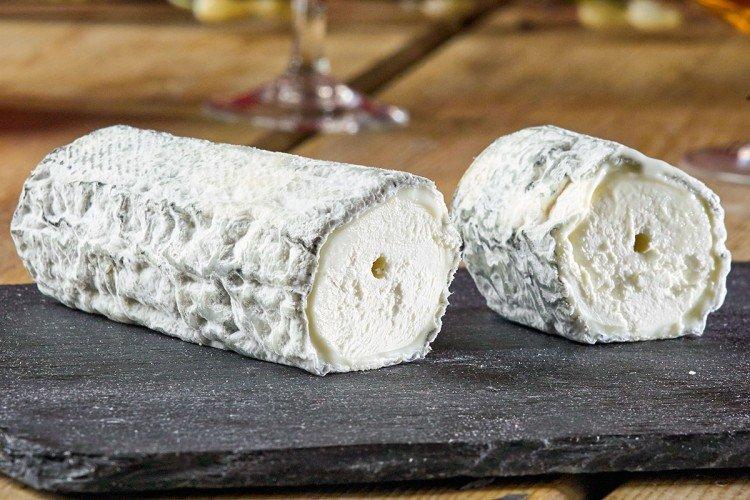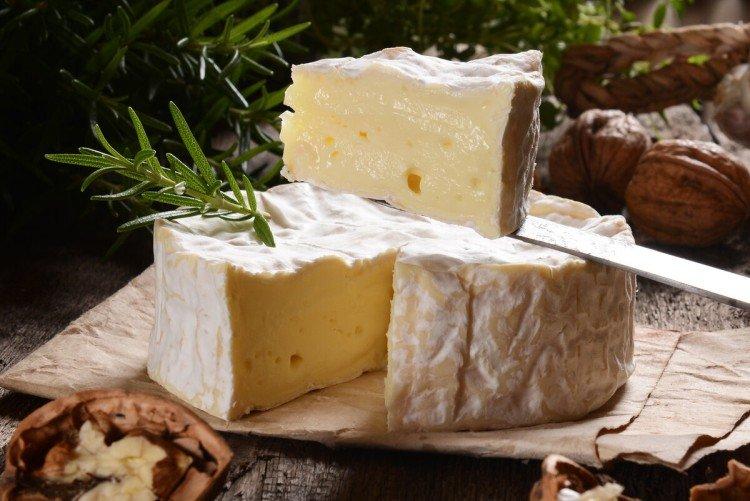
Soft cheeses are very different in density and consistency. But it is very difficult to distinguish common taste traits from them, they are all so original. Therefore, we found out for you everything about different types of soft cheeses, and prepared - a list with names, photos and descriptions!
Soft cheeses with white mold
Noble white mold is a gourmet classic. These cheeses are very popular, common and versatile. With them, you can start getting to know a specific product!
Bree
The softness and texture of brie depends on the ripening time. The smaller it is, the softer and softer the texture. Brie is one of the most popular and classic white-mold cheeses.
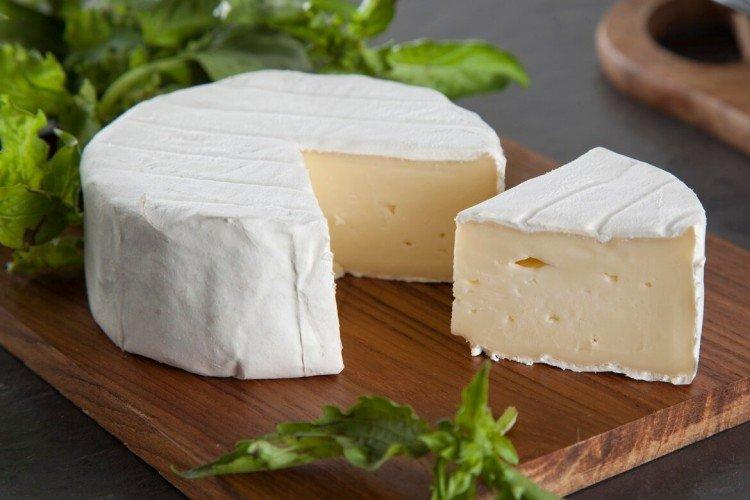
Camembert
Camembert is very similar to brie, but its flesh is even softer. It melts well, so it is often fried. The color of the cheese is rather dark and the taste is slightly mushroom.
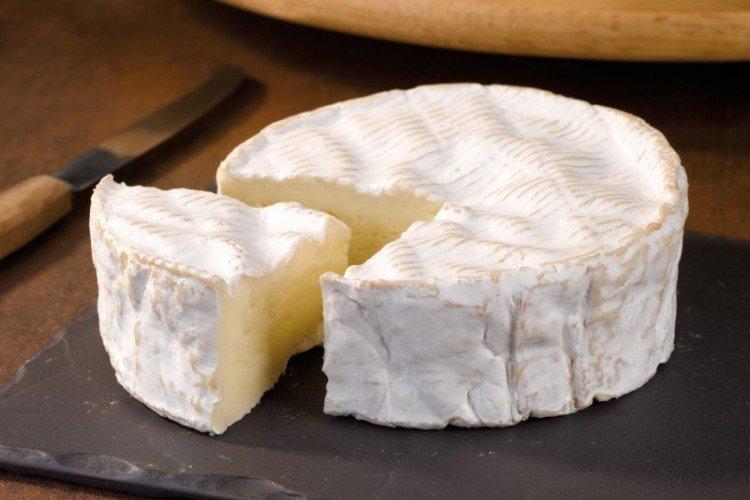
Neuchatel
This cheese not only has a very pleasant pulp, but also the rind of the white mold itself. Due to the long ripening, it has a slightly different texture. Nechâtel has a very sophisticated taste and is a great snack.
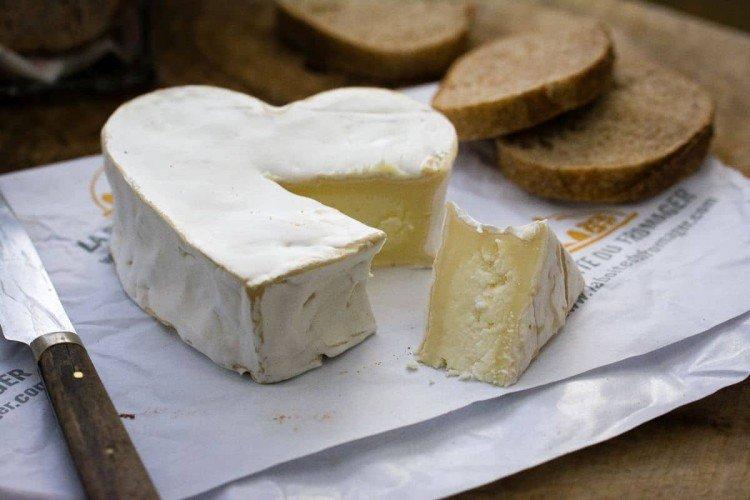
Square
Fatty soft cheese has a fairly neutral flavor and lighter aroma compared to other blue cheeses. If this is your first experience in such appetizers - start with a square!
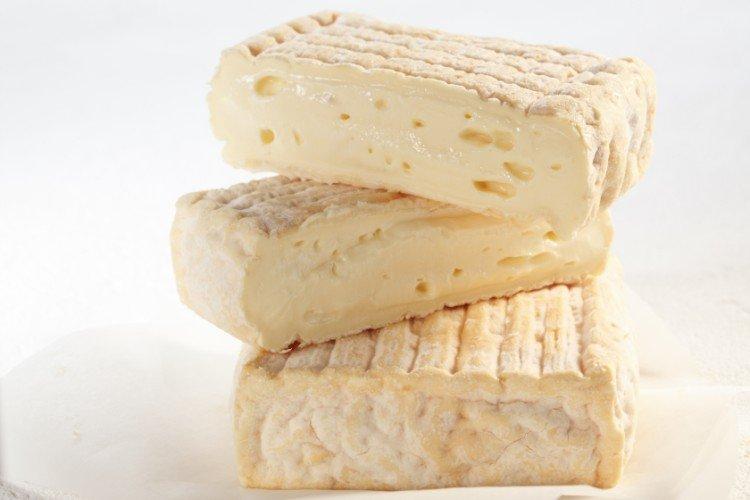
Shaurs
The texture of this cheese is so soft that it could be called creamy. The taste of shaurs is the same original - either mushroom or nutty.
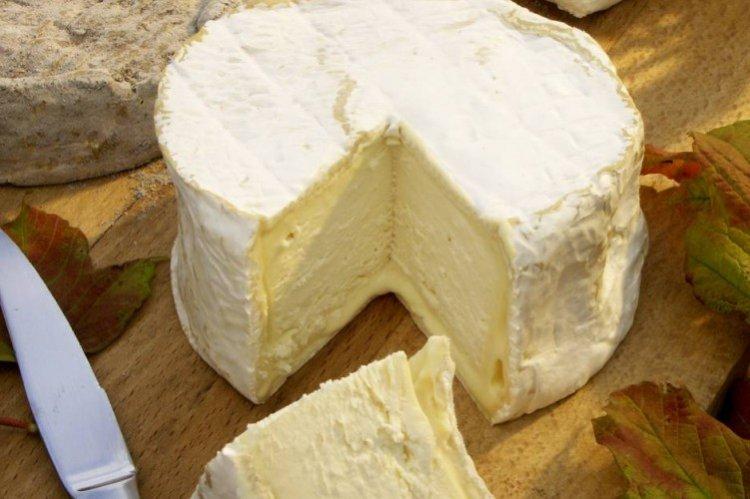
Soft cheeses with blue mold
Gourmet cheeses are a sumptuous stand-alone snack. Plus, they are used in salads, sauces, main courses and even some desserts!
Roquefort
Traditionally, it is made from sheep's milk, and rye bread is used at one of the stages of preparation. That is why it has such a rare, special and recognizable taste.
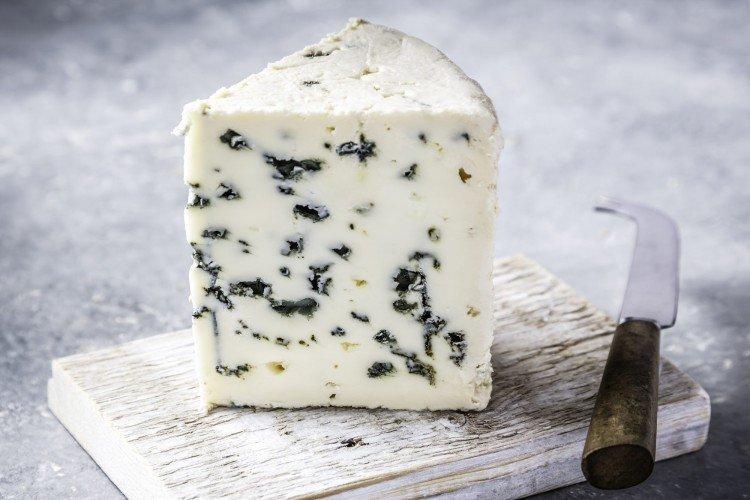
Gorgonzola
Gorgonzola differs from most blue cheeses in its sweetish flavor. It goes well with pears and other fruits, and is even used in desserts.
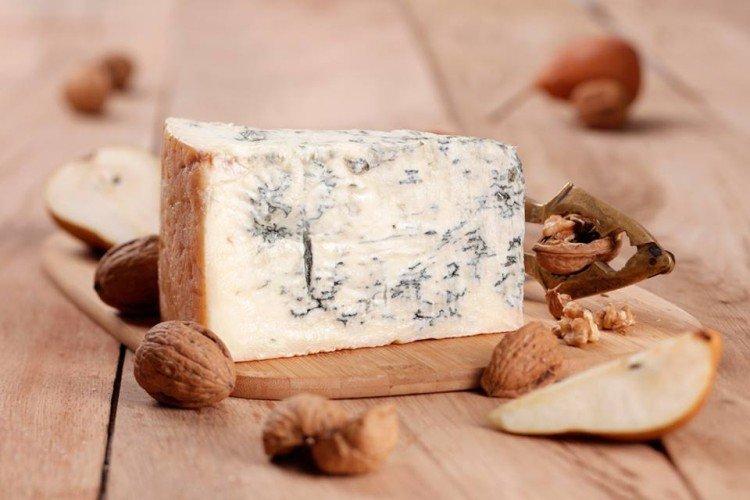
Ble de Bresse
Very soft and aromatic, this blue cheese will appeal to real gourmets. A delicate texture and an interesting distribution of veins are provided by the increased humidity during maturation.
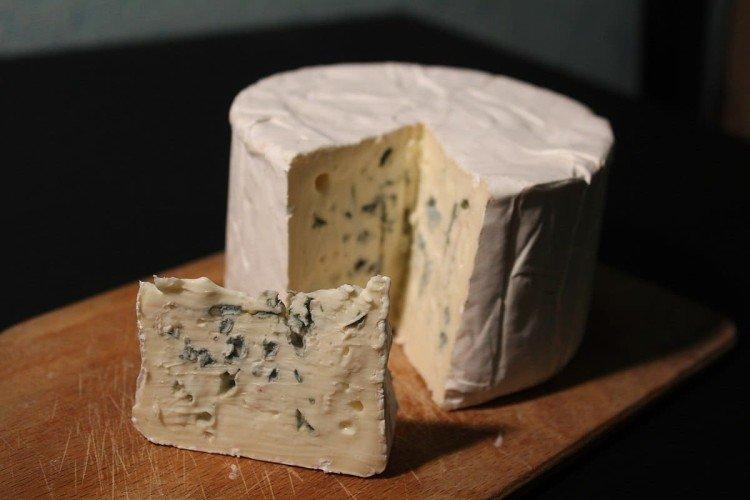
Fourme d'Amber
For the production of this cheese, milk collected from cows from high-mountain pastures is used. Experienced gourmets can easily distinguish these notes in the taste.
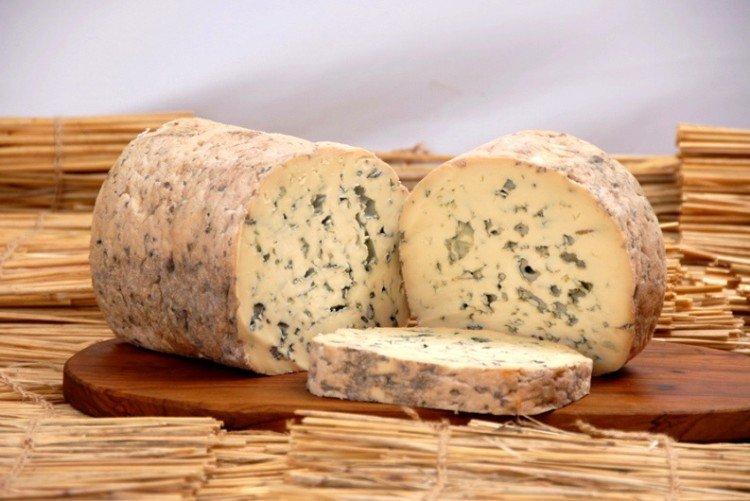
Bayern Blue
The variety is so mild that it can even be easily spread on a canapé or toast. Bavarian blue cheese - fat, slightly sour, with a yellowish tinge of flesh.
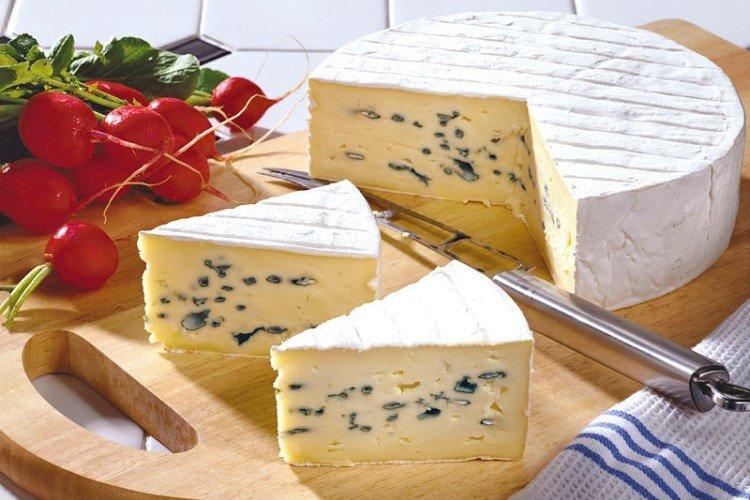
Ble de Coss
This French blue cheese is as close to roquefort as possible. It is also one of the oldest blue cheeses in the world, mentioned in Caesar's notes. Now milk from only two breeds of cows is used for its preparation.
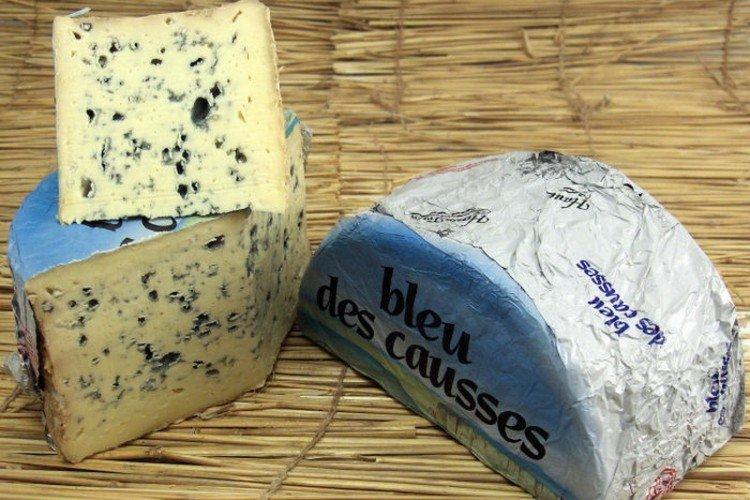
Fast ripening soft cheeses
Fast ripening cheeses differ slightly in production technology. But this does not in any way affect the quality of the finished product, so we are talking about the most delicious varieties.
Ricotta
Depending on the specific manufacturer, ricotta is made from milk from cows, sheep and buffaloes. It has an expressive sweetish taste, which is why it is often used in desserts.
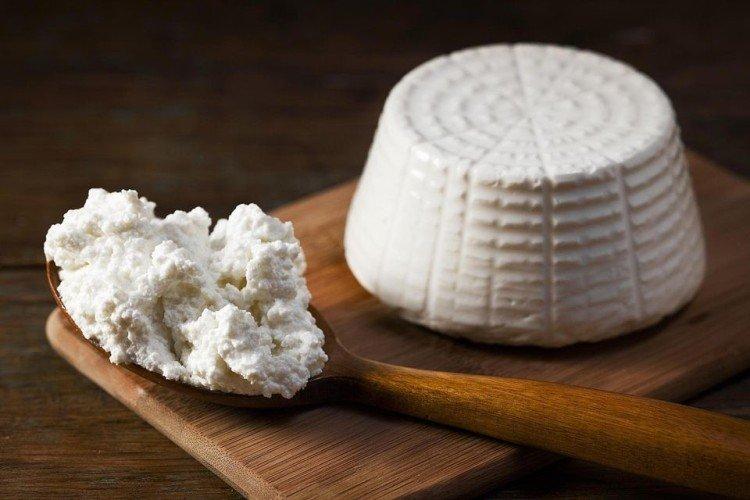
Feta
Salted feta is ideal for appetizers and salads. This is a Greek cheese made from cow's or goat's milk, with a slight sourness and crumbly curd texture. We should also mention feta with herbs and herbs.
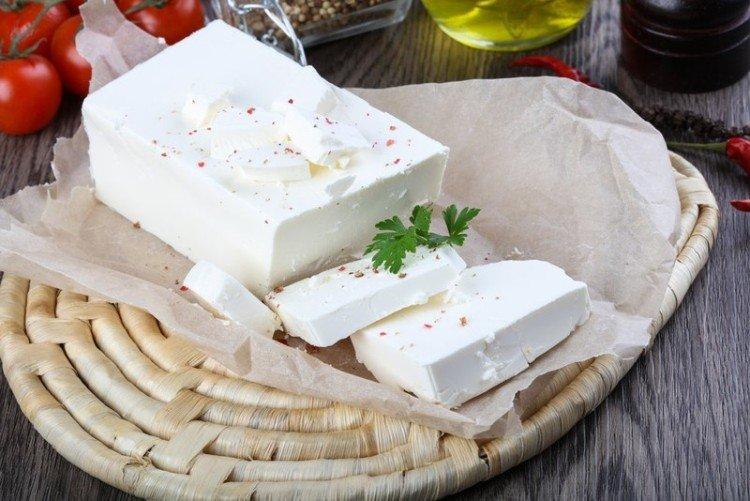
Mozzarella
Previously, mozzarella was made from buffalo milk, but now cow's milk is more commonly used. There are many different varieties of mozzarella, so it's very versatile!
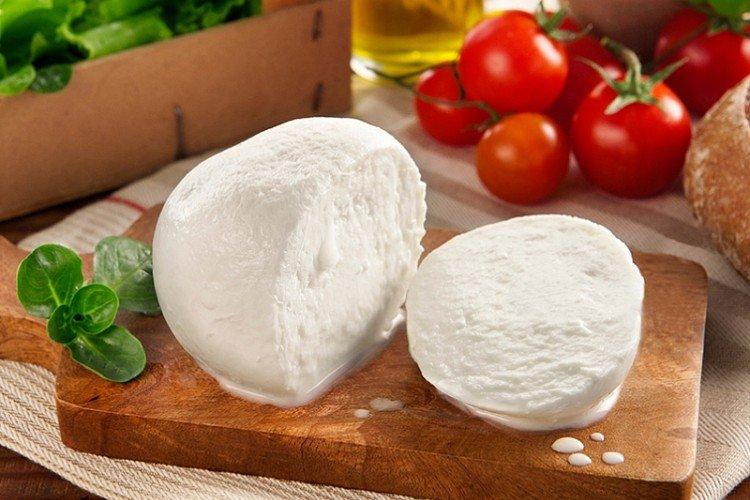
Mizithra
Loose curd cheese is made from milk, cream, and warmed up whey. Some Mizithra varieties can be dried with salt and grated for a snack.
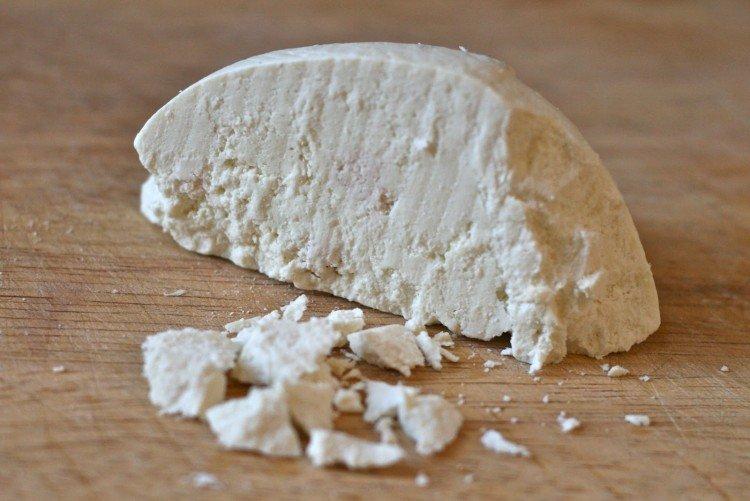
Philadelphia
A creamy, quick-ripening cream cheese used for desserts, rolls, creams and sauces. Skimmed pasteurized milk and milk fat are used for the production.
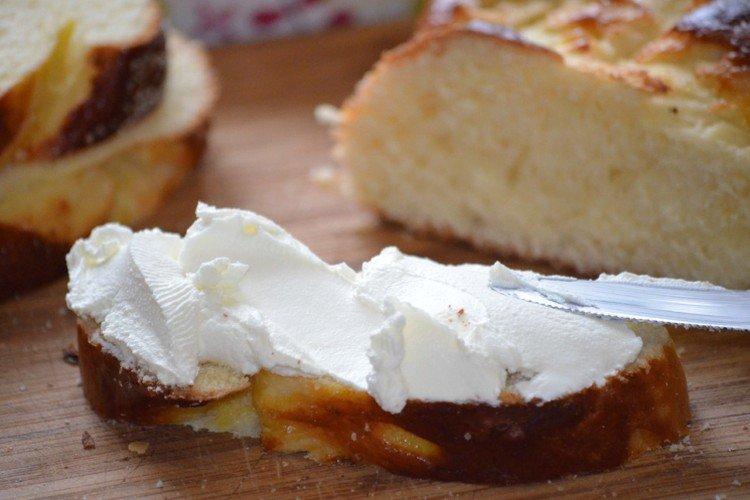
Soft cheeses with washed rind
When made, such cheese is very similar to blue cheeses, but the technology is slightly different. During the ripening process, they are washed with brine.
Maray
The head of this ancient cheese is covered with a bright yellow, orange or even red crust. The pulp is tender, homogeneous and rather greasy. The taste of the cheese is quite specific, but very original.
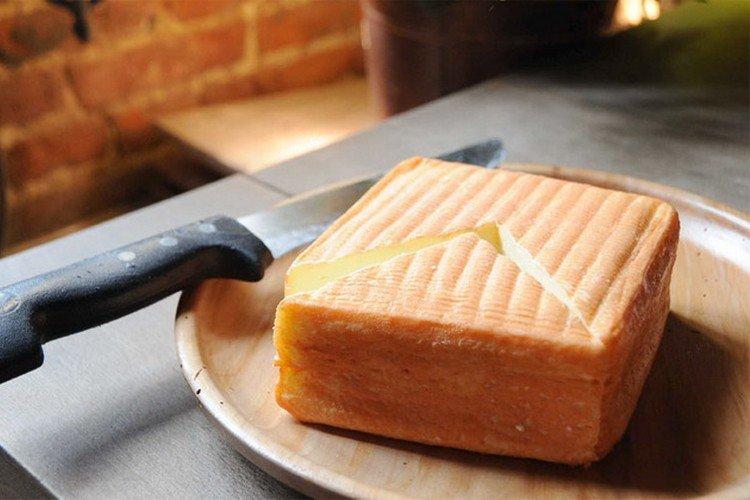
Mont-d'Or
This soft cow cheese is produced in Switzerland or France. Moreover, in Switzerland it is prepared from pasteurized milk, while in France it is vice versa. When ripe, Mont-d'Or is wrapped in spruce bark, which gives it an original aroma.
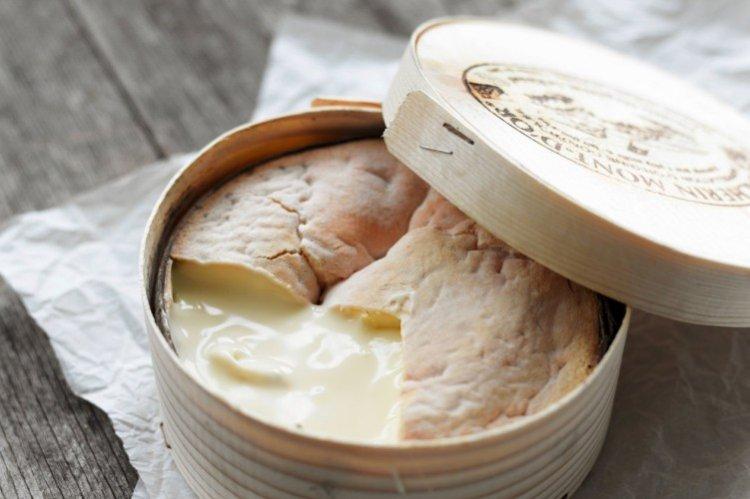
Romadur
Soft Czech cheese has a not very pleasant smell, but very tasty pulp. Traditionally, it is served with beer snacks, but it is good in other dishes as well.
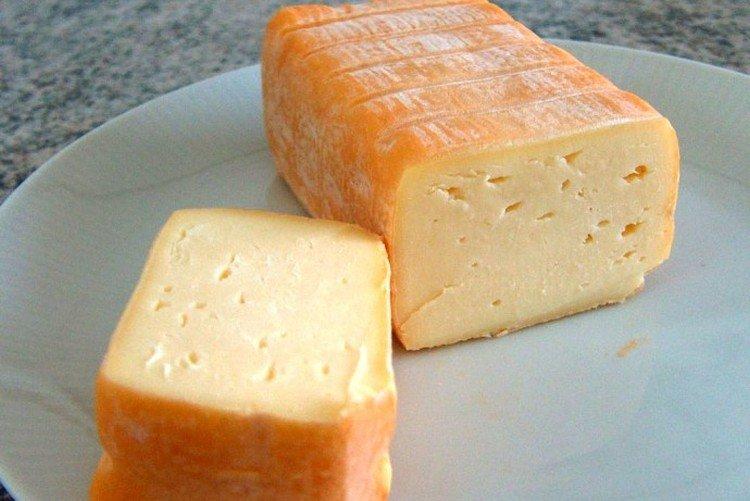
Limburger
Belgian cheese is also widespread in Germany, Austria and the Netherlands. The yellow-brown crust is also edible. Limburger goes well with potatoes and main courses, as well as beer and cider.
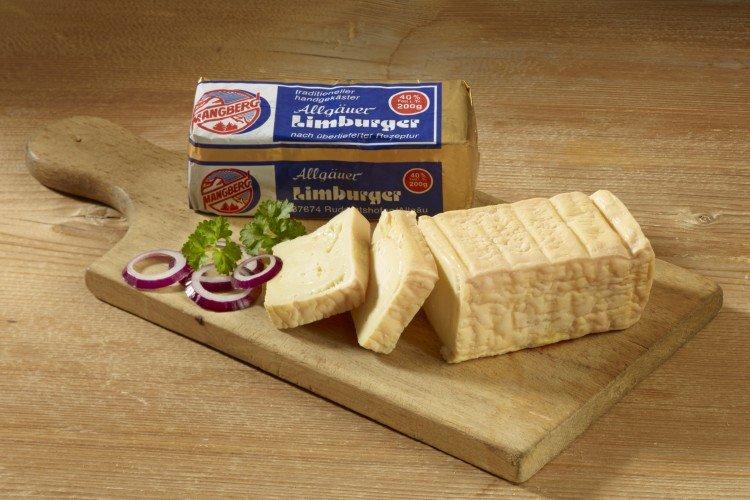
Munster
This cheese has a very characteristic and recognizable smell of that washed crust. For it, cow's milk is used at a strictly defined temperature. When ripe, it is regularly washed with salt water from springs in the Vosges.
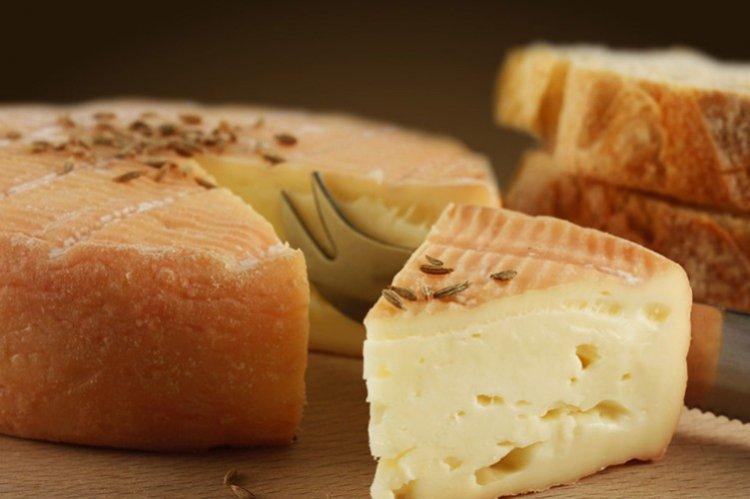
Taleggio
Italian dessert cheese is distinguished by original fruity notes in taste. By the way, this is one of the oldest soft cheeses. It is produced strictly in autumn and winter, when the cows "get tired" to graze in fresh meadows.
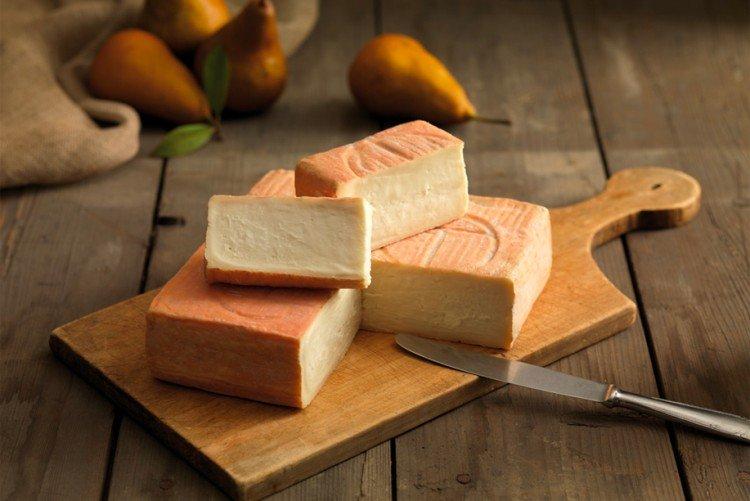
Soft cheeses made from goat milk
Goat cheeses have a subtle but very characteristic goat milk flavor. They cannot be confused with cows, just as it is impossible to remain indifferent!
Banon
Soft, tasty cheese in small round heads is easily recognizable by its serving. It is traditionally wrapped in chestnut leaves.
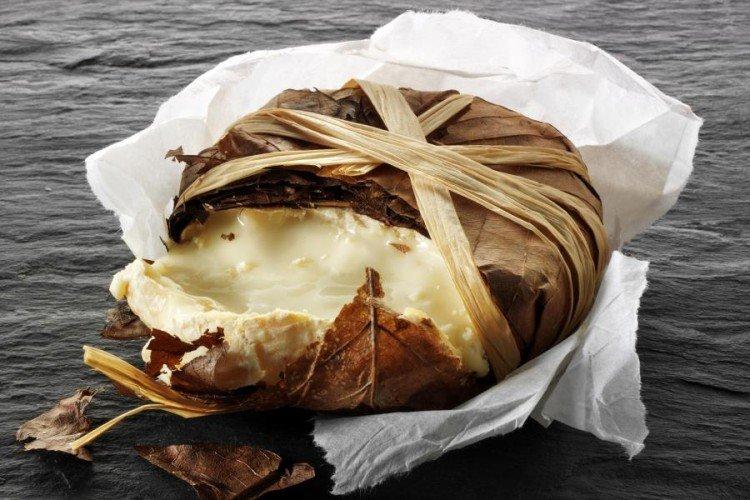
Crotin de Chavignol
The sour, nutty flavor makes this cheese ideal for snacks. It is served with fruit, bread and just white wine, and is occasionally used in desserts.
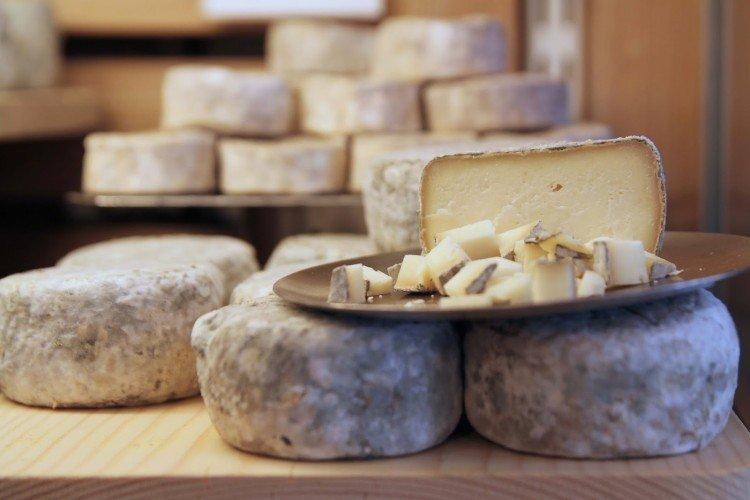
Picodon
The picodon is made in small forms with small holes, and then it matures for several weeks in the cellar. The longer the exposure, the denser, firmer and more yellow the flesh.
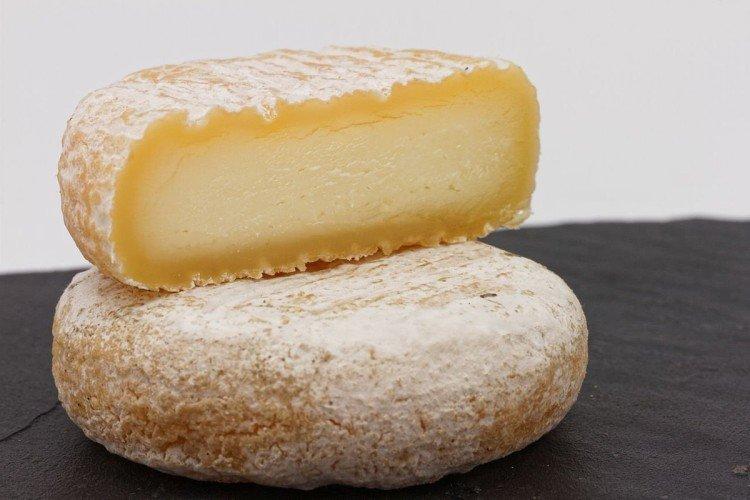
Katics
Creamy Greek cheese is indispensable for appetizers and salads. It is very delicate and light, with a recognizable goat milk aftertaste.
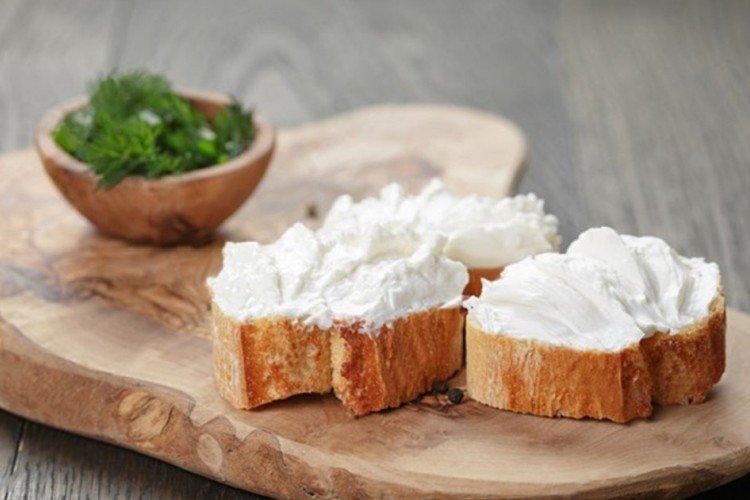
Valence
Soft goat cheese is made in the form of a characteristic pyramid, and production begins in the fall. The pulp with a nutty flavor is covered with a bluish, moldy crust. For storage, it is sprinkled with ash.
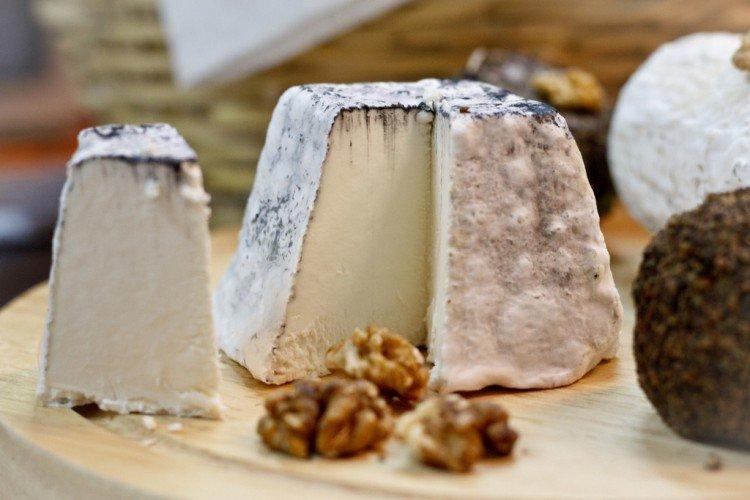
Sainte-Maur-de-Touraine
And this cheese is covered with a bluish-gray fluffy mold crust. It is made in the form of a cylinder-log with a rye straw inside. During the production process, the cheese is sprinkled with salt and charcoal.
